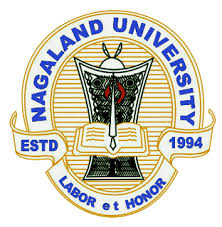General Information
Nagaland University stands as the most significant public Central University in the state of Nagaland. Established by an Act of Parliament in 1989 (though becoming operational in 1994), its creation was a crucial step in providing accessible and quality higher education within Nagaland itself. Before its establishment, colleges in Nagaland were affiliated with the North-Eastern Hill University (NEHU).
Its mission is deeply intertwined with the educational and developmental aspirations of Nagaland and its unique cultural context. It aims to disseminate knowledge, promote research relevant to the region (including tribal studies, biodiversity, natural resources), and equip students with skills for various professions. It functions as both a teaching university across its multiple campuses and as the primary affiliating university for all degree colleges throughout Nagaland.
Key Recognitions:
A Central University established by an Act of Parliament.
Recognized by the University Grants Commission (UGC) under Section 12(B).
Accredited by the National Assessment and Accreditation Council (NAAC) with a 'B' Grade.
Holds necessary approvals from relevant professional bodies like AICTE (for B.Tech/MBA), NCTE (Education), BCI (Law - via affiliation) for specific programs.
MCI Recogination
Permitted u/s 26(1) (a) (b), 28(1) (2) and 61(2) of NMC Act 2019 during A/Y 2023-2024. Annual renewal permission granted for 100 MBBS seats for AY 2024-25
Campus Facilities
The Campuses: Spread Across Nagaland
Nagaland University operates across several campuses, reflecting its reach within the state.
Lumami Campus (Headquarters): This is the main administrative and academic headquarters, located in the Zunheboto district. It hosts numerous postgraduate departments, particularly strong in Sciences and Social Sciences. Its location is relatively remote but scenic.
Kohima Campus (Meriema): Situated near the state capital, Kohima, this campus is also significant, often housing departments related to Education, Social Work, specific Sciences, and potentially Management or English.
Medziphema Campus: This campus is specifically focused on Agricultural Sciences & Rural Development, hosting the School of Agricultural Sciences and Rural Development (SASRD).
Dimapur Campus (SET): The School of Engineering & Technology (SET) operates from a campus likely located in or near Dimapur, the state's commercial hub.
Campus Vibe: The campuses, especially Lumami, offer a unique experience of studying amidst the hills of Nagaland, often in serene but sometimes challenging environments due to remoteness. Infrastructure reflects central university funding efforts, aiming for functionality.
Infrastructure & Facilities (Across Campuses):
Academic Departments/Schools: Dedicated buildings house the various PG departments and Schools (SASRD, SET).
Libraries: Central libraries on the main campuses (Lumami, Kohima, Medziphema) plus departmental libraries, with growing collections and digital access.
Laboratories: Equipped labs supporting teaching and research in Sciences (Physics, Chemistry, Botany, Zoology, Geography, Geology), Agriculture (at Medziphema), Engineering (at Dimapur), and Computer Science.
Learning Spaces: Lecture halls, seminar rooms, classrooms.
Residential Facilities: Extensive hostel facilities are crucial given the locations and are available on all major campuses.
Amenities: Administrative offices, health centers providing basic medical aid, guest houses, canteens, banking facilities (ATMs/branches depending on campus), potentially post offices, transportation services connecting campuses/towns.
Hospital & Medical Facilities
Leading tertiary care hospital attached to the institution
Healthcare Connection: Focus on General & Technical Academics
Nagaland University does not have its own constituent Medical College offering the MBBS degree, nor does it operate a large general teaching hospital. Its academic focus lies in Arts, Sciences, Social Sciences, Commerce, Management, Education, Agriculture, and Engineering/Technology. Medical education in Nagaland (like the Nagaland Institute of Medical Sciences & Research, Kohima) functions under the state government and NMC regulations, potentially affiliated academically with Nagaland University for degree awarding purposes but administratively distinct. The university provides basic healthcare through its campus Health Centres.
Fee Structure
State University Affordability
Fee Structure: Central University Affordability
Being a Central University, Nagaland University provides higher education at highly subsidized and very affordable fees, making it accessible to students from the region and across India.
City Details
Hostel & Mess
Campus Living: Essential Hostel Facilities
Given the geographical locations of its campuses, particularly Lumami, residential facilities are crucial.
Availability: Yes, the university provides extensive, separate hostel accommodation for boys and girls across its main campuses (Lumami, Kohima, Medziphema, Dimapur). Accommodation is generally provided to most students admitted to on-campus programs.
Facilities: Hostels offer basic furnished rooms (mostly shared), common rooms, dining halls (messes), security, warden supervision, essential amenities, and access to campus health and sports facilities.
Mess System: Each hostel typically operates its own mess providing regular meals, often including local Naga cuisine alongside standard Indian fare, managed on a dividing or fixed-rate system.
Cost: As a Central University, the combined cost for hostel accommodation and basic mess food is extremely affordable. Expect the total annual charges to be very economical, likely falling well within the ₹15,000 - ₹30,000 range (Needs precise confirmation from hostel authorities).
Miscellaneous
Admissions & Career Pathways: CUET & Regional Relevance
Getting Admitted:
CUET is Primary: Admission to most Undergraduate (UG) programs (like B.Tech, B.Sc Agri, BBA, BCA offered on campus) and Postgraduate (PG) programs (MA, MSc, MCom, MBA, MCA, LLM, M.Ed, etc.) offered directly by Nagaland University departments is now primarily through the Common University Entrance Test (CUET-UG) or CUET-PG, conducted by NTA. The university uses CUET scores for preparing merit lists and conducting admissions/counselling.
Affiliated Colleges (UG): Admissions to UG courses (BA, BSc, BCom) in affiliated colleges are predominantly based on merit in the Class 12 examination, managed through college-level applications following university guidelines.
B.Ed: Admission might be through CUET-PG or a specific state/university level test.
Ph.D.: Admission involves a separate University Entrance Test followed by interviews/viva-voce. NET/JRF qualified candidates are often exempted from the entrance test.
Always check the official Nagaland University admission notification and CUET website (nta.ac.in) for the latest procedures and specific course requirements.
Career Support (Placements):
Focus: Nagaland University has a placement cell that facilitates career opportunities. Given its location and academic strengths, career paths often lead towards state government jobs within Nagaland, teaching positions (School/College level after B.Ed/NET/Ph.D.), roles in agriculture and rural development, NGOs, entrepreneurship, or pursuing further academic research.
Campus Placements: Direct campus placements are more likely for professional courses like B.Tech (SET), MBA, MCA, and potentially specialized M.Sc programs. Recruiters might include regional businesses, banks, IT companies with presence in the Northeast, educational institutions, and government agencies/projects.
Outcomes: Placement success varies. Average packages from campus drives are generally modest compared to metro cities, often in the ₹2.5 LPA to ₹4.5 LPA range. The university plays a critical role in developing human capital for Nagaland and the Northeast region and preparing students for competitive exams.
Information for NRI / Foreign Nationals
Central Universities like Nagaland University usually have provisions for admitting international students.
Collage Images Gallery
Facilities & Campus Life
Well-equipped Library
Experienced Faculty
Computer Lab
Sports Activities
Heritage Campus
Frequently Asked Questions
Why Consult With Us?
- 15+ years of experience in medical education counseling
- 5000+ students successfully guided
- 50+ partner universities worldwide
- Free initial consultation with no obligation














